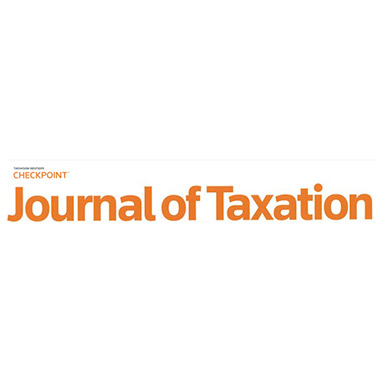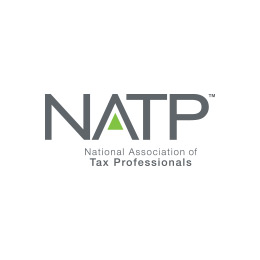If you received a gift from a non-U.S. citizen, you will be required to report it to the IRS. Failing to comply with the IRS’s reporting requirements can result in giving up a significant percentage of your gift’s value.
Gifts you received in addition to your yearly gross income must be reported on Form 3520 each year. An individual might also be required to complete a Report of Foreign Bank and Financial Accounts (FBAR) if the gift was in the form of a financial account. Failing to report a gift can cost an individual anywhere between five to twenty-five percent of the gift’s value. Fortunately, there are ways to get compliant if a reporting error has occurred.
Call McCormick Tax Law at (215) 630-0861 to get your free case review with our attorneys for IRS foreign gift reporting and penalties.
General Rules for Reporting Foreign Gifts and Bequests to the IRS
If you are a U.S. citizen or resident who has received substantial gifts or bequests from a foreign individual, you may need to fill out Part IV of Form 3520, Annual Return to Report Transactions with Foreign Trusts and Receipt of Certain Foreign Gifts. Gifts must be reported on Form 3520, which is an information return rather than a tax return, as foreign gifts are not subject to income tax.
Failure to file Form 3520 on time or provide incomplete or inaccurate information can lead the IRS to apply severe tax consequences for receiving a foreign gift or bequest without reporting it. You will almost certainly face penalties if you lack reasonable cause for a failure to report your gifts.
In general, a foreign gift or bequest refers to any amount received from a non-U.S. person that the recipient considers a gift or bequest and is excluded from their gross income. However, foreign gifts do not include amounts paid for qualified tuition or medical expenses on behalf of the U.S. person.
A foreign individual includes a nonresident alien, foreign corporation, partnership, or estate, as well as a domestic trust considered owned by a foreign person. Additionally, distributions from a foreign trust must be reported on Form 3520.
Reporting Requirements for Foreign Gifts and Bequests
Reporting foreign gifts or bequests is only necessary if the relevant threshold has been surpassed. When determining your reporting threshold, it is essential to consolidate gifts from associated entities so the sum total is known, which our attorneys for IRS foreign gift reporting and penalties can help you calculate. For gifts or bequests given by a nonresident alien or foreign estate, you are required to report the receipt of such gifts or bequests only if the total sum received from that nonresident alien or foreign estate goes beyond $100,000 within the taxable year. In cases where the gifts or bequests exceed $100,000, each gift valued above $5,000 must be individually identified.
When it comes to claimed gifts from foreign corporations or foreign partnerships, you must report the receipt of such gifts only if the total amount collected from all sources surpasses $16,815, which is annually adjusted for inflation. It is necessary to individually identify each gift and the donor’s identity. This is because the IRS can redefine assumed gifts from foreign corporations or partnerships.
Keep in mind that you might also need to submit a Report of Foreign Bank and Financial Accounts (FBAR), depending on the nature of the gift provided. This usually comes down to the type of asset or account bequeathed to another person.
What are the Due Dates for Filing Form 3520 for Foreign Gifts and Bequests
For U.S. residents, the due date for filing Form 3520 is generally April 15th of the following year, which is the 15th day of the fourth month after the tax year ends. However, for U.S. citizens or residents living outside the United States and Puerto Rico, or those serving in military or naval service abroad, the deadline is June 15th, the 15th day of the sixth month after the tax year ends.
In the event a U.S. individual receives an extension for submitting their income tax return, the deadline for filing Form 3520 is likewise extended to the 15th day of the 10th month following the conclusion of their tax year. By correctly submitting extension Form 4868 prior to your return’s due date, you will be granted an extension to file your return by October 15. If an extension is filed for your income tax return, remember to verify it on Form 3520, Box 1K, and provide the form number of the income tax return you filed for that year. This ensures that your Form 3520 is recognized as complying with the deadline.
Penalties for Failing to Report Foreign Gifts and Bequests
Should Part IV of Form 3520 be submitted untimely, insufficiently filled out, or with inaccuracies, the IRS has the power to assess the tax ramifications associated with acquiring the foreign gift or bequest. The penalty imposed in a specific instance of non-adherence to Form 3520 filing regulations is contingent upon whether the failure to submit was intentional, careless, also known as non-willful, or happened due to a reasonable cause.
If individuals fail to accurately report their gifts or bequests promptly, they may be subject to a penalty that amounts to 5% of the gift’s value for each month of delay, up to a maximum of 25% of the gift. However, if they have reasonable cause for the delay, they may be exempt from the penalty. Reasonable cause can be claimed when there is no viable method for an individual to learn about a particular responsibility. In general, reasonable cause means that the taxpayer has not ignored any useful information or counsel regarding their obligations. However, the IRS considers some obligations so extensively understood by people with average knowledge that failing to make the correct filing because of a reasonable cause usually cannot be argued.
Keep in mind that you will still receive some form of punishment for failing to file Form 3520, regardless of whether the failure was willful or negligent. However, a willful failure to file Form 3520, such as a fraudulent return filed with the IRS or false statements made on your filing, will usually be penalized much more harshly, including criminal prosecution and possible prison time.
How to Comply with Foreign Gift Reporting Requirements If an Error Was Made
Individuals who have missed the filing deadline or failed to provide all the necessary information have a few options to get compliance with the IRS’s policies. For instance, submitting a voluntary disclosure for Form 3520 entails providing the IRS with a revised or past-due Form 3520. In essence, the filer willingly unveils their inability to file Form 3520 on time or discloses that a previously submitted Form 3520 had many mistakes or missing information.
Also, an individual can file an updated or belated Form 3520, commonly referred to as a quiet or silent disclosure, in the hope that the IRS will overlook their tardiness and potentially refrain from imposing a penalty.
Our Attorneys for IRS Foreign Gift Reporting and Penalties Can Help
For a free evaluation of your case, contact our attorneys for IRS foreign gift reporting and penalties at McCormick Tax Law today at (215) 630-0861.










